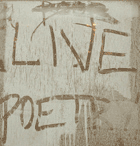(January 2006) MLK Jr. Day 2006, so most businesses are closed. I am perched in a rocker with a nice cup of tea, looking out the window at the remnants of a two-day snowstorm that is now being washed away by a gentle rain.
“It’s easy to be an armchair überliberal,” a Sun magazine letter writer notes, but “out in the confusion and hubbub of the world, people of different races are living flush up against one another, doing what they can to build bridges of understanding and create small spaces of kindness in their daily lives.”
I want to believe that is true. And I know that is sometimes true.
I know that people who have very little can be incredibly generous, that a few brave souls will eventually rise up, refuse to sit in the back of the bus or organize Freedom Rides through KKK territory, that, every once in a great while, humanity will make an incremental step forward.
I also recognize that I am talking about kindness in the era of Abu Ghraib, in a year in which the VP of our democracy is lobbying Congress on behalf of cruel and unusual punishment.
When my pal Rosa was a peace corp volunteer in Africa, a woman whose younger sister died told her matter-of-factly that her deceased sister’s infant twins would now die too. This is reality in a place where scant resources and massive starvation are the norm.
Resignation in the face of atrocity is ocassionally the norm in the underbelly of US culture too, where families struggle to survive —sometimes for generation after generation and sometimes by learning to work the system—but the twins would have had a much better chance of surviving in this country.
... so let’s all sing oh oh your worries ain’t like mine now, shall we, and turn back to our reality TV shows because, as Barbara Bush says, look how well those poor people are doing!
Meanwhile, it is almost certainly no coincidence that MLK was assassinated when he began to criticize capitalism.
The twins fought to survive in a landscape in which the strongest takes the food and therefore thrives.
In our landscape, the ones with the most resources claim others’ resources as their own—through business transactions and increased profit margins and decreased benefits for workers and abysmally low minimum wages and diminished workers’ rights and confiscated pensions, through supply and demand.
The rich rob the poor legally because they have the resources necessary to do so.
If you grew up among poor but honest Americans, as I did, then you scrimped and saved and did without and followed the Golden Rule and lived in accordance with the tenets of the bible—that disastrous tome that has helped so many politicians and ambitious popes and robber barons keep generation after generation of people compliant—while you kept your eyes fixed firmly to the afterlife.
(Sounds like a bad spam subject line, doesn’t it?)
It’s no coincidence that, when I lived in DC, it was the drug dealers who bought the shoeless children their shoes, not the government or any of those money-laundering nonprofits that Republicans open right and left.
Talk to dealers and gang members and you will learn that many recognize the social structures that oppress them and they’re understandably infuriated by the fact that our society allows members of their extended family to roam the glass-strewn streets barefoot while others have so much.
In some ways, the drug dealers and gang members who sprout in our squalor are the true entrepreneurs, the disenfranchised who somehow discover a way to achieve the American dream.
Listen to good rap music or good indy music or good art or, well, many things and you will discover an undercurrent of unrest along with a determination to deviate from the predetermined suburban script for having it all.
•
So okay I’ll jump topics again and end with a poem:
WATER PRAYER
by Stuart Kestenbaum (From The Sun magazine (12.2005)
And this morning I awoke to rain, which makes
its own rhythm on the window, and the world is full
of these rhythms, rhythm of water, rhythm of the heart,
which sounds like an underwater pump, the lub-dud
of all it knows, which is making all I know possible,
and on the roof rain falls and turns to hail, then snow,
then rain again, running down the shingles to the gutters,
the gathering-up that makes rivers and lakes and oceans,
from cloud to drop to torrent, how nothing is lost.
LISTENING TO: the tea kettle starting to boil
READING: The Sun magazine


No comments:
Post a Comment